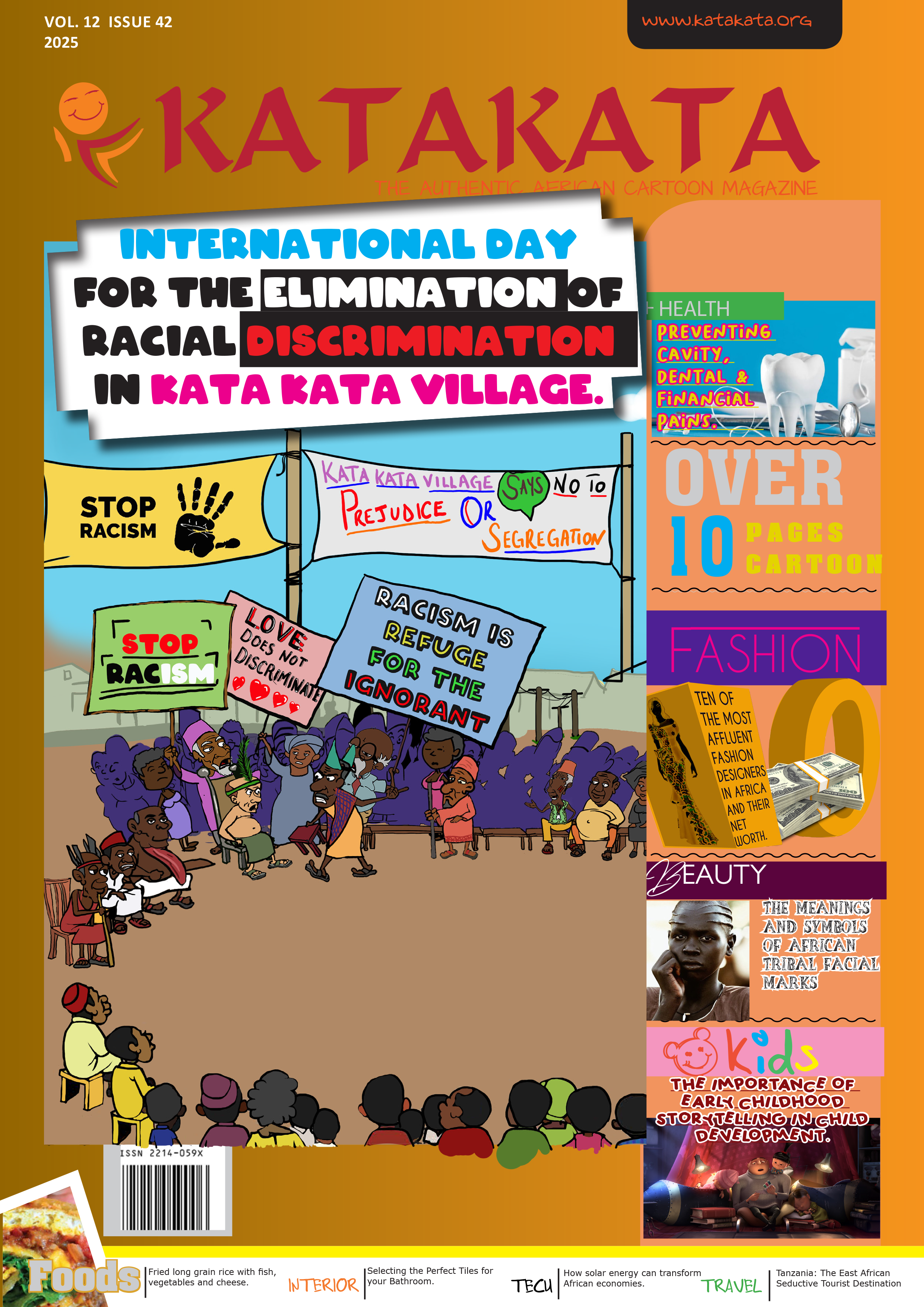Grab your copy of the latest Kata Kata Magazine, available in print and digital formats!!!
Aiming
Towards A More Tolerant Society.
The best way to
measure a country's progress and development is by examining the level of
power, influence, and freedom of the minorities in the country. Despite a
country's economic, political, or military power, if minorities are victims of
discrimination and suppression, such a society cannot be deemed developed. That
includes discrimination of any kind against the minorities.
As we celebrate
the International Day for the Elimination of Racial Discrimination on March
21 every year, the United Nations (UNO) stands as a beacon of hope,
encouraging everyone, the community, and the nation to reflect on the
challenges of racial inequality and contribute to a world where discrimination
is eliminated. We can achieve this noble goal by stopping unfair treatment of
or prejudice against individuals or people based on race, sex, ethnicity, age
or disability.
The choice of
March 21 yearly is not accidental; it commemorates the infamous Sharpeville
massacre, a tragic event that occurred in South Africa during the apartheid
era. This was when the then White government of South Africa imposed
discriminatory 'pass laws' that restricted the movement and rights of black
citizens. In response to the inhuman and prejudicial law, thousands of people
peacefully gathered in Sharpeville to protest the 'Pass law' and other
tyrannical laws. Their peaceful protests were met with brute force at the hands
of law enforcement agents, resulting in the death of 69 people and the injury
of many more protesters.
Of course, the
white occupiers did not ask for a visa before they entered South Africa, nor
did the black natives elect them to rule them. The White occupiers took over
the land, ruled the blacks and made discriminatory laws, one of them the
"Pass law." That says much about both the occupiers and the reaction
of the enslaved.
The Sharpeville
massacre attracted condemnations worldwide and became a symbol of racial
injustice faced by the people under apartheid – and a wake-up call against any
form of discrimination. The brutality resulted in a global call to end racial
discrimination in all forms and made the UNO declare March 21 as a day to
highlight the evils of racial discrimination and a campaign to eliminate all
forms of discrimination. This global response shows that we are part of a
larger movement against discrimination.
The UNO General
Assembly encourages and urges all countries, organizations, and individuals to
take meaningful steps to address racism and all forms of discrimination. As an
individual, you have a significant role to play in achieving this critical
goal.
Through campaigns and educational initiatives, we can raise awareness of racial inequality, promote inclusivity worldwide, and demonstrate a commitment to dismantling systems of discrimination while promoting tolerance and understanding among diverse communities. Let us make this our top priority if we want a peaceful, fair, and egalitarian world.

